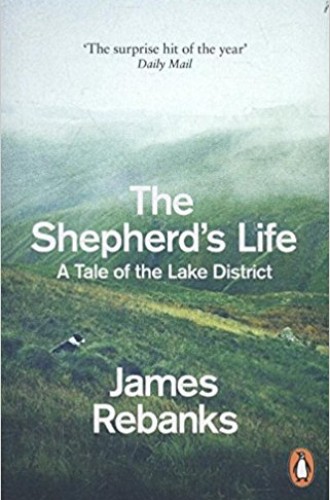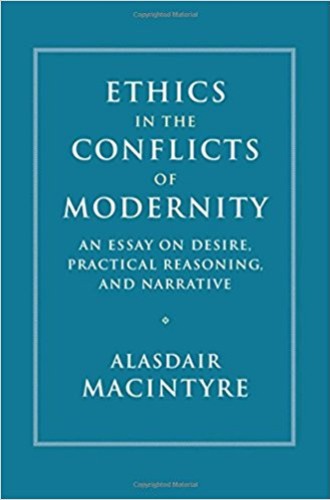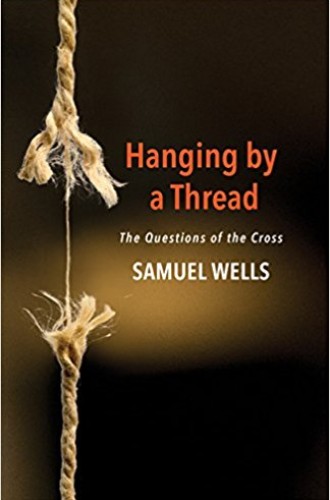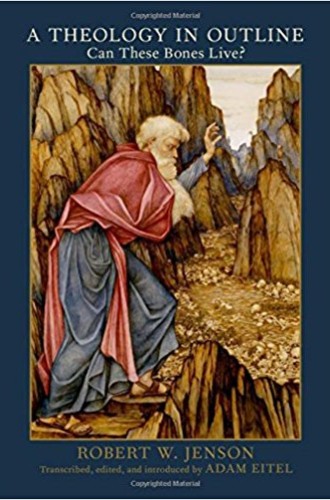“This is my life. I want no other.” Thus ends James Rebanks’s The Shepherd’s Life: A Tale of the Lake District. The life he wants is that of a shepherd. In particular, he relishes the joy that comes in the spring when he lets the sheep out to make their way in the rocky and uneven ground of the Scottish fells. Rebanks says little about his religious convictions or practices, but his memoir is filled with the wisdom that comes from good work done well. Rare is the book about how to live well that avoids the boredom of didactic seriousness. But Rebanks, who left formal schooling as soon as he could (and still ended up acquiring an Oxford degree), writes beautifully and with insight. Readers will also learn more than they ever thought they wanted to know about sheep.
In Ethics in the Conflicts of Modernity: An Essay on Desire, Practical Reasoning, and Narrative, Alasdair MacIntyre happily provides an extraordinary account of the shaping of our desires by practical reason. He does, of course, deal with his usual topics: the significance of narratives, the virtues, and the kind of politics required if we are to flourish as contingent beings. But this book is a genuinely fresh and substantive account of MacIntyre’s understanding of what a good life entails. He includes descriptions of the lives of four people who he believes exercised the kind of judgments his book commends. Who other than MacIntyre would find people as different as Sandra Day O’Connor and C. L. R. James as exemplars of the well-formed human being?
Samuel Wells is a pastor and theologian whose insights are drawn from his insistence on loving those who so often defy any attempt to be loved. Wells has recently written several books that advance his account of the moral life, and none is more important than his cross-shaped reflections in Hanging by a Thread: The Questions of the Cross. The wisdom in this book comes from Wells’s refusal to let the continuing decline of the Church of England dominate his imagination. Wells shows how this state of affairs offers an opportunity for the church to discover its relationship with God’s promised people: the Jewish people. This small book reclaims the story of Israel and the Jews as constitutive of what it means to be a Christian.
Robert Jenson, who died in September, left us a great gift. A Theology in Outline: Can These Bones Live? is made up of lectures he gave while teaching his final course in theology at Princeton University. With great clarity, Jenson develops his distinctive account of Christian theology as the investigation of how we can (and should) live if in fact a first-century Jew named Jesus has been raised from the dead. Like Wells, Jenson never lets us forget that the God of Israel makes it possible for us to live as storied people in a world that fails to acknowledge that all existence is storied. We are, according to Jenson, a people determined by the cross. Thus, we may live as a people who want no life other than the one the resurrection has made possible.
Read the other 2017 Christmas picks here.








